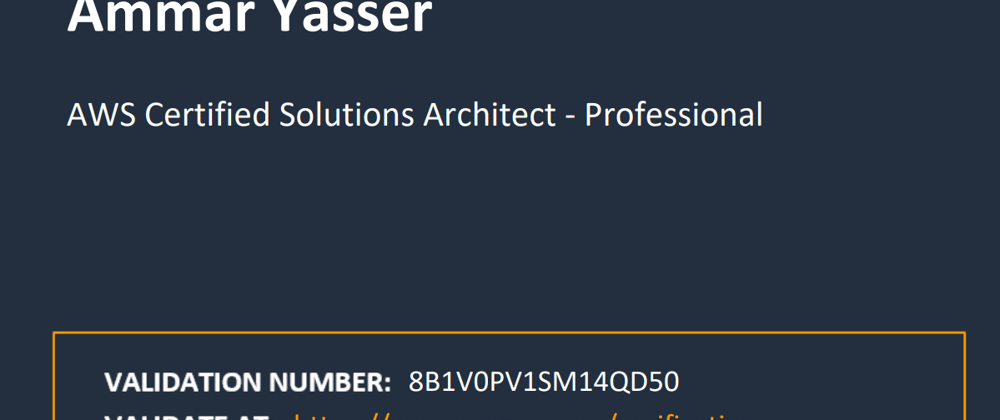I'd like to start with saying that my opinions are my own. feel free to disagree with me. that being said.. wish you a good read.
The usual debate about certifications 😖😒
You might look at the study time and resources it will take you to finish a certification like this and think wow, the industry is truly in a bad state for allowing such a phenomenon to appear. And i will tell you that sorry, this is just how the world works. We sometimes have a very difficult decision to make while selecting a leader, hiring an employee, choosing a major... etc. and we simply don't have enough data to make a choice. and so what we do is look for proxies. Same as what happens with coding interviews. the interviewer is looking for a proxy for you being a good software engineer and you solving the coding problem means there's less chance that you are a bad hire -although obviously it's not a zero chance-.
Certification will always matter in IT especially because there are new tools appearing all the time and it's hard to gauge how experienced a candidate is in this tool. people may lie on their resume, or make up stories about problems they solved.. but they can't fake passing an exam.
Why the SA pro is different 🤔
The SA pro is like all other certifications, a proxy. but it's a very good proxy and its a proxy for so many great skills that you will benefit from on your job. The exam is really difficult and this is a good thing. you won't be able to pass without a firm grasp of networking, automation, security, encryption and so many other topics.
It's also a proxy for your ability to learn and study, which is one of the most important skill you need as someone in tech. And so it means that it's successful in its job as a proxy and does indeed prove good things about its holders.
Play for the love of the sport. not to win 💡😎
The certificate itself doesn't matter. but its the knowledge you gained while studying for it. Taking the exam and passing just helps you feel the reward of the journey and being able to tell the world how far you stand in your journey, But it isn't the true gain.
With that being said, don't prepare for the cert with the cert as your end goal, You'll meet products that you may have not used before while learning. Use them, implement an architecture with them. open the product page at the console and see what different options you can choose while provisioning it.
As a professional level solutions architect it's very normal that you get asked by your employer to implement a highly available hybrid directory solution, to build a disaster recovery plan with very few minutes of RPO for a few hundred terabytes database, or to preform zero downtime migrations of very complex legacy systems. will your cert matter when find yourself unable to preform these tasks in real life ?
How to actually pass ? 💯
For practice exams i used the ones by tutorialsdojo and whizlabs. A special mention has to go to Adrian Cantrill's exquisite course and how well put it is. But mind you.. the course is a whopping 75 hours. and so the secret lies in doing it everyday. Find a way to embed your study into your routine and do it EVERYDAY!!
You don't have to do alot on a single day but being consistent with it is in my opinion the only way to beat this daunting challenge.
Also, you must be able to pinpoint your knowledge gaps, after a failed practice exam go through your incorrect answers and find out what wrong assumptions you had while answering the question and then take note of the correct fact about the product. and iterate.
Architectures to build as your prepare
You need hands on experience as you prepare, these are some architectures that i believe are essential for you to have built before the exam. Let me know your ideas in the comments:
Build a three tier architecture and create failover DNS records to another region
Serverless application using API gateway, Lambda, DynamoDB. Bonus points if you integrate a queuing service ⏩
Launch an RDS database with some dummy data, then migrate it to another region using DMS 🎒
Implement hybrid DNS between two VPCs.
Connect VPCs in different ways, try a Transit gateway, try Site-to-Site VPN, then try a peering connection.🚧
Create an organization and configure a monitoring account with an organizational trail 👀
Launch random EC2 instances with different types and AMI's then evaluate compliance using a config rule 🛑
Deploy a dummy app with Elastic Beanstalk using different strategies 🌱
Bonus points when you only use cloudformation. feel free to reach out to me if you're trying to build these 💌







Top comments (0)